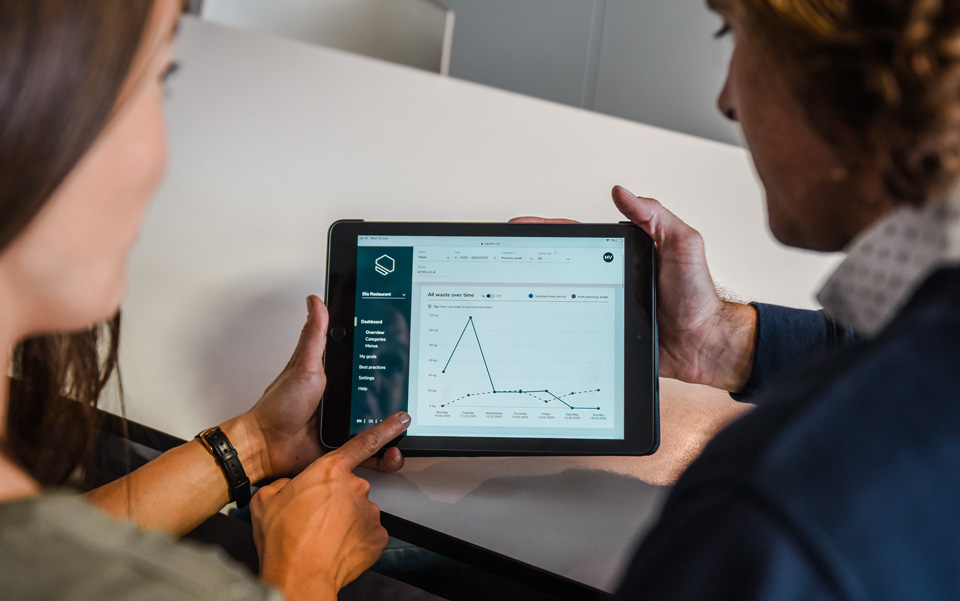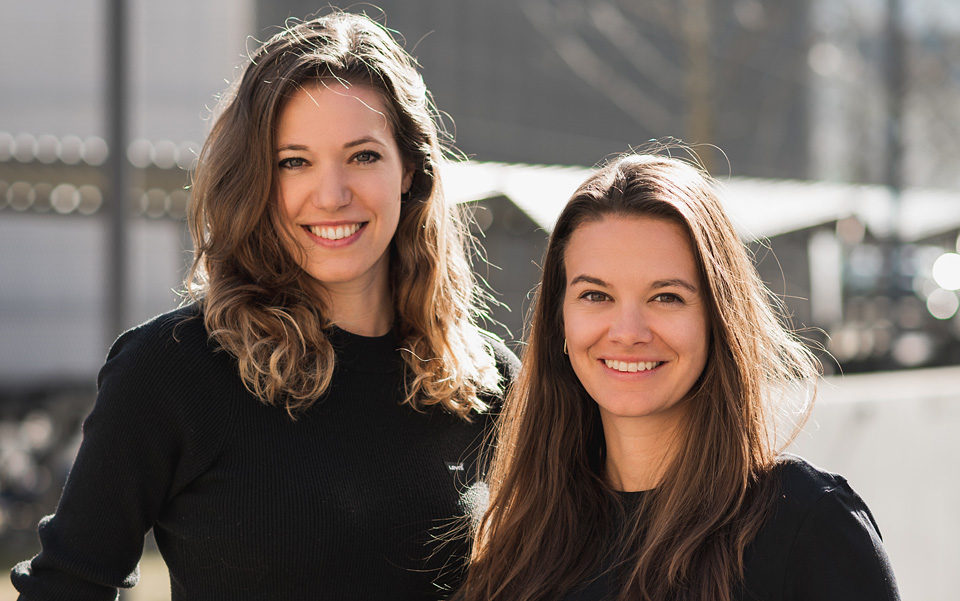Tonnes of food ends up in the waste every day in the kitchens of Swiss restaurants, hotels and hospitals. The Swiss start-up Kitro helps companies to reduce food waste. Even golf courses are now relying on the weighing scales system that’s based on artificial intelligence.

Kitro was founded in 2017 by Naomi MacKenzie and Anastasia Hofmann, who met at the Hospitality Business and Hotel Management School in Lausanne and were appalled to see how much food – food that was actually still edible – ends up in the bin.
The solution they have developed – a weighing scales equipped with a camera and specialist software (read more here) – automatically records and identifies the discarded food leftovers and classifies it using machine learning algorithms. Analysing the collected data enables companies to determine what type of food is being thrown in the bin and the times of the day when wastage is highest.
Tailored advice
But it isn’t just systems and data analysis that the start-up offers; it also provides tailored advice on which specific changes companies can make. “We’ve established that simply providing our measurement data often isn’t enough,” says Naomi MacKenzie. “We help our customers to set food waste reduction targets and to identify changes that can be made to their planning, procedures and food preparation. We go through the analysis with them and look for changes a company can make to ensure less food is thrown away.” Little changes can often go a long way, as the following real-life examples highlight.
Expansion abroad
Around 100 Kitro systems are now being used in hotels, restaurants, universities, hospital kitchens, ski resorts and golf courses. The majority can be found in Switzerland, but Kitro weighing scales are now also being deployed in Germany, Italy, Greece and the UK.
The Kitro systems are also being used in around a dozen luxury hotels. Analysis reveals that food waste can be cut by around one third (28%) in this segment by using the Kitro solution. In total, 4.7 tonnes less food was discarded.
“We are often asked why we don’t provide Kitro for ordinary households. We’ve acquired in-depth expertise in the restaurant and hotel industry from first-hand experience, which is why we intend to continue focusing on this segment,” explains Naomi MacKenzie. “We also find it extremely exciting to see how foodtech can increase the level of innovation and resource efficiency in a traditional sector, enabling it to go beyond what has been done for the past century – from the technology used in restaurants to the dishes now being served. We’re very proud of our contribution to cutting food waste, which is a vitally important sub-element in the supply chain as a whole.”
Extensive support from Innosuisse
Kitro has already taken advantage of various types of support from Innosuisse. In addition to two Start-up Training modules, the start-up has benefited from initial and core coaching. It has also received support for an Innovation project with Zurich University of Applied Sciences (ZHAW) and the NTN Swiss Alliance for Data-Intensive Services (data+services).
Kitro has also just redeemed an Innovation cheque for a new project together with the Hospitality Business and Hotel Management School in Lausanne. All that Naomi MacKenzie would reveal at this stage is that it involves upscaling. The two Kitro founders are still also working as trainers for Innosuisse start-up training. They would also like to take part in the Internationalisation camp in San Francisco in the near future to gain a first-hand insight into the US market through this Innosuisse initiative.
Last modification 23.08.2022






